We began our ministry in Ecuador in 1974, with the Child Sponsorship Program. In 2002, we started the Leadership Development Program and in 2006, the Child Survival Program.

Country Director
Fernando Puga joined our ministry in Ecuador as Country Director in 2001. Before this, Fernando was a civil engineer and had his own consulting firm.
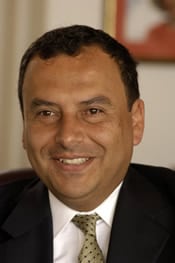
And during the 1990s, prior to having his own firm, Fernando was Executive Director at the World Bank, working to reform elementary education curriculum and promote the concept of school networks in poor areas of Ecuador.
In 1999, he was named Vice Minister of the Interior of Ecuador.
Fernando holds a Master of Structural Engineering degree from Escuela Politécnica del Ecuador University in Quito.
Implementing Church Partners
Implementing Church Partners are local churches in Ecuador with whom we work to deliver child development programs and ministry in the field.
- Spiritual Climate
Catholicism is the main religion in Ecuador, comprising over 80 percent of the population, while Protestants comprise just over 10 percent of the population.However, Catholicism is diminishing and Protestant evangelical denominations are growing.
The indigenous people practice unique religions, often combining pre-Hispanic traditions with the Catholic faith. Throughout the country, people are free to practice whatever religion they choose with no fear of persecution.
- Unique Challenges
One challenge we face in Ecuador is the high number of broken families. Many mothers are head of their home, and many fathers have multiple homes and families. This results in even more extreme poverty as the fathers cannot provide for multiple households.Poverty often leads to abuse, and many women are victims of abuse from the men in their lives. Many children in Ecuador are being raised in this environment, which interferes with healthy development particularly with their sense of confidence and self-esteem.
Other challenges in Ecuador are a the lack of job opportunities, low quality of education, lack of access to adequate health care, an increase in the number of child workers, and child abuse in homes and other environments.
- Typical Contributions
The Implementing Church Partners provide personnel, logistical support, professional representation, local management and their relationships with other organizations. - Partner Development Activities
We have a partner development program focused on teaching skills, managerial skills, project management, follow-up and monitoring. We also provide training on family topics.Additionally, we give support through occasional radio programs, monthly newsletters and yearly meetings with pastors and church leaders.
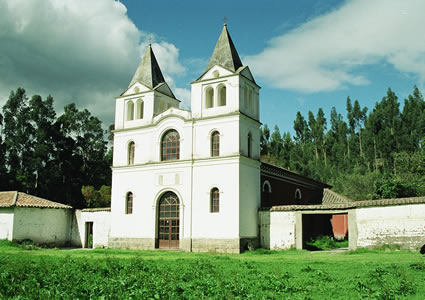
Child Survival Program
- Caregiver Literacy
We offer quarterly literacy classes that cover basic literacy skills, such as identification, reading and writing of the alphabet, simple words and numbers, as well as activities to develop skills for day-to-day literacy, such as reading prescriptions, instructions, food labels, etc. - Income-Generating Skills
We offer monthly workshops that teach different skills depending on the mothers’ needs and interests.The most common workshops are beauty (haircuts, manicures and pedicures), knitting, ornament making, and making hygiene products such as shampoo, chlorine and disinfecting liquid.
- Health Care
We encourage mothers to utilize the free health services offered at public hospitals and government health centers. Some Child Survival Program centers have agreements with other health care institutions to receive free or discounted medical checkups and medicines.If there are any children or mothers who cannot access adequate medical care at the public hospitals due to the hospitals’ lack of equipment or supplies, we provide additional ministry funds for them to go to a private hospital or doctor’s office.
- Nutritional Support
Every month, each Child Survival Program center provides baskets of food for seven mothers and their children. The criteria for receiving these baskets are mothers who have just given birth, mothers and children who do not have adequate nutrition, and mothers and children whose families are in extremely hard circumstances.The food products included in each basket are specific to meet the needs of the individual families, and the budget for each basket of food is $20 (USD).
- Involvement of Fathers
We have parent meetings, contests and sports competitions to encourage the fathers to become involved in the Child Survival Program.During home visits, program implementers make an effort to talk to the fathers about the importance of their involvement in their child’s development. However, many fathers do not want to attend program activities because most of the attendees are women.
- Transitioning Out of the Child Survival Program
Children who are preparing to transition to the Child Sponsorship Program are taken once a week by their mother or caregiver to the 3-to-5-year-old Child Sponsorship Program classes. The objective of this is for the Child Survival Program children to play with the older kids and become familiar with their common activities.Also, some centers have a training plan for the mothers whose children will be transitioning to the Child Sponsorship Program. Once a month, they are asked to join the Child Sponsorship Program activities that are appropriate for their children or to attend a parent activity such as a lecture.
- Areas of Expansion for the Child Survival Program
We plan to open additional programs in provinces in the coastal region and in the highlands because these provinces have extreme poverty and high vulnerability.
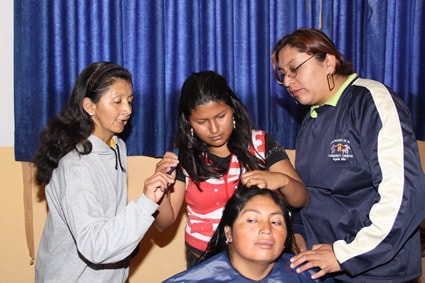
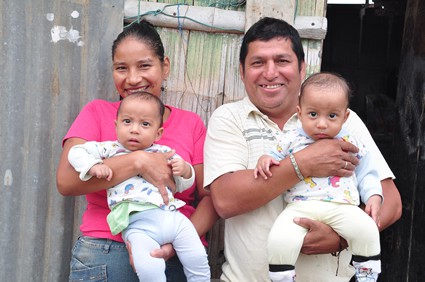
Child Sponsorship Program
Your sponsorship of a child in Ecuador provides a variety of benefits.
The children attend the child development centers after school.
- Meeting Times
- 3 to 5 year olds: 4 hours a day, 3 days a week
- 6 to 8 year olds: 4 hours a day, 3 days a week
- 9 to 11 year olds: 4 hours a day, 3 days a week
- 12 to 14 year olds: 4 hours a day, 3 days a week
- 15 to 18 year olds: 4 hours a day, 3 days a week
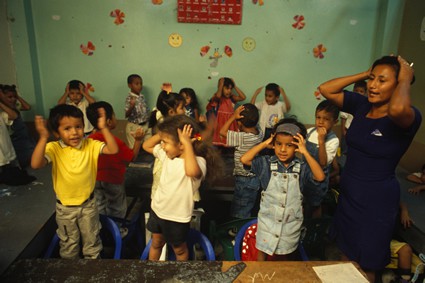
Each child receives lunch every day they are at the center. A typical lunch consists of soup containing carbohydrates or vegetables and meat and a main dish containing carbohydrates, proteins and vegetables.
Some child development centers offer snacks to the children before they go home as well, and it is very common to give additional food to children under age 5.
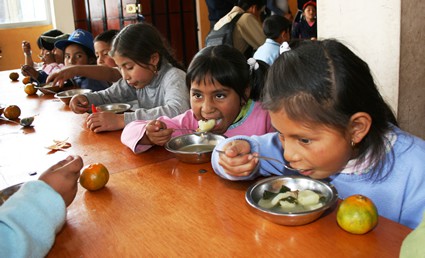
The Ecuadorian government provides the necessary vaccines free of charge.
We use a certified curriculum for adolescents called “More Than Conquerors,” which was developed by our staff. We are, however, still working on the final portion of this curriculum, specifically the vocational training portion.
The government in Ecuador is currently focusing on extracurricular activities for children in schools, so the Implementing Church Partners are coming alongside the already existing programs and offering new extracurricular alternatives depending on the local need and resources.
Generally, the Implementing Church Partners offer soccer, art, music, dance and liturgy. A few Implementing Church Partners organize trips and camps.
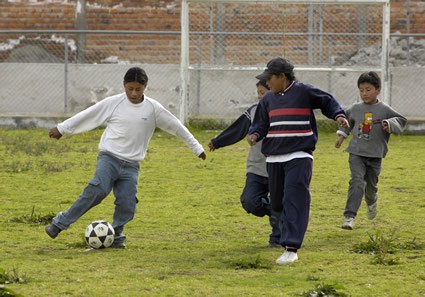
We want adolescents to invest their time in school and to acquire skills so that they will have increased opportunities for earning an income in the future.
Our adolescent program in Ecuador includes three to four hours of class per week. This program offers classes about nutrition, health care, educational reinforcement, access to libraries and vocational training. Adolescents also attend camps and go to youth group meetings on Saturdays.
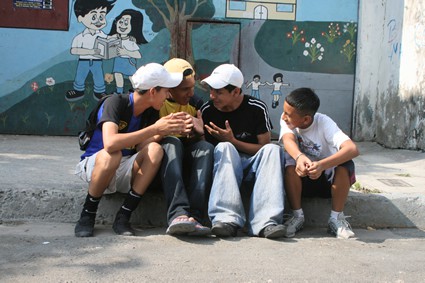
Implementing Church Partners offer parenting classes once or twice a month. We feel that parent involvement is critical to the children’s success, so we have created an entire program that is aimed at strengthening parents.
We encourage pastors to take charge of the families, training parents and involving them in different spiritual and academic activities.
When considering areas of expansion we take into the consideration the following factors: the presence of other sponsorship organizations competing for territory, the quality of existing services, and the level of poverty.
Given these three factors, we would like to expand into Esmeraldas, Manabi, Guayas, Bolivar, Napo, Pastaza and Zamora Chinchipe. These areas are in three zones: the jungle, the highlands (which are over 3,000 meters above sea level and where the poorest zones in the country are located), and the river basins along the coastal regions where there are frequent floods and extreme poverty.
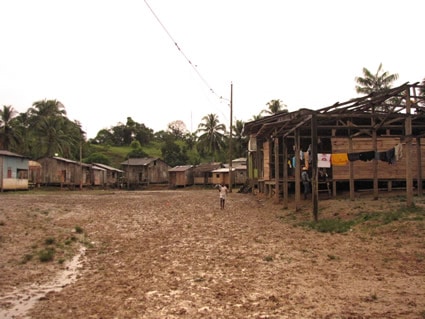
Leadership Development Program
- Universities Attended
The students attend government, private and Christian universities. - Location of Universities
The universities are spread all throughout the country. - Working Students
Some students work while they attend university, specifically those from the zone of Manabi because the university fees in that area are higher. - Service Opportunities
The students volunteer at churches and child development centers; they also perform community service at schools, parks, orphanages, retirement homes, jails and hospitals. - Leadership Development Program Meetings
The larger Leadership Development Program group meets three times a year to receive leadership training.In addition, students meet in smaller groups to do community work on a monthly basis.
- Specialty Curriculum Topics or Resources
The ministry in Ecuador cover topics like entrepreneurship, the importance of saving, cost-benefit analysis, and decision making as it relates to the economy.In the area of physical development and health, we cover conditions and tendencies of the Ecuadorian family as well as the differences between Andean ancestral medicine and Western medicine.
- Mentors
The students have one month to find a mentor, and if they need assistance, the Leadership Development Program Specialist will help them. - Career Placement Assistance
The Field Office administers psychological and vocational tests to assist students in choosing their specific career field.
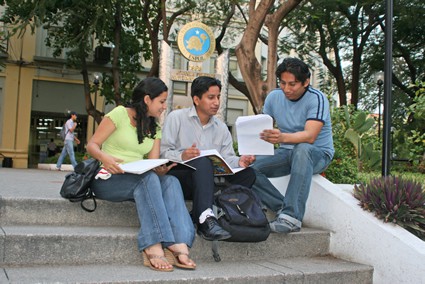
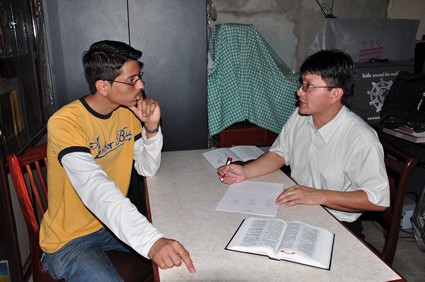
Complementary Interventions
Our core Child Sponsorship Program, while comprehensive, does not address all obstacles to a child’s healthy development. The Complementary Interventions program was created to work with our holistic child development model to provide additional services, such as our AIDS Initiative, Bibles for all children, disaster relief and clean water.
Generally, Complementary Interventions are addressed in three ways: urgent interventions in cases of emergency or disaster, planned interventions based on needs assessed by our staff in Ecuador, and planned interventions based on needs assessed by the Implementing Church Partners.
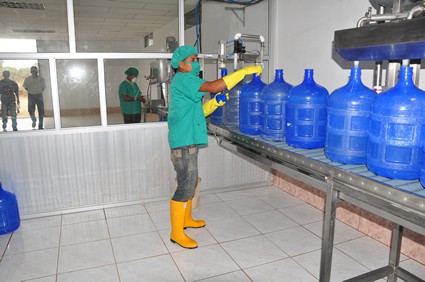
The most frequent interventions have been related to water purification, disaster relief, entrepreneurial ventures and infrastructure improvement.
VIDEO EXTRA
Our staff and church partners in Ecuador are dedicated to serving families in their community. This video — created by our Ecuador country staff — illustrates a spirit of service embodied by the young men and women they serve.


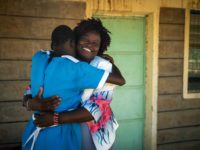
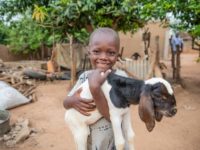
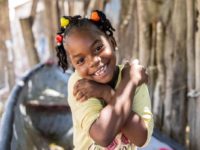


12 Comments |Add a comment
Ecuadorian Staff, Tours and Visits Ecuador are so excited to trip comming trip. God will bless us!!!
Thank you for your work there….
I am so excited to follow the bloggers. My daughter and I are picking several every day and praying for them… seeing how many of the Ecuador children will be sponsored. 🙂
I hope all of the ones listed will be!!!!
grace~
How wonderful to see the video of the Compassion students who are reaching out in such beautiful ways to their community!!! What city is project #520 in? We have two children we sponsor in Ecuador whom we love deeply! Thank you for the ministry to “our” children there!!! 😀
EC-520 is in Machala, on the coast of southwest of Ecuador near the Gulf of Guayaquil.
We also have a child in Ecuador. I sponsored a child there after reading more about the country during the DaySpring Christmas card drive. I have been really impressed with how organized and well-run the program seems to be there. An example – we got a beautiful letter from our child’s pastor giving us more information on what their community is like and the special challenges they face. I really appreciated that he took the time to do that. That’s the first pastor letter I ever received.
I can’t wait to read the posts from the Compassion bloggers who will be in Ecuador. Do we know what child centers they’ll be at?
The current plan, which is subject to change, is for us to visit EC-478 on Tuesday, EC-431 on Wednesday , EC-270 on Thursday and EC-273 on Friday.
i am so excited for your trip to Ecuador! i always enjoy your writings, Chris, and am really looking forward to following your journey this week. i dream of going to Ecuador one day, to meet my 13-yr. old sponsored child, Daniel, who lives in the highlands of Salasaca, east of Ambato. i have only been sponsoring him since April, but he quickly became very special to me! Will be praying for you all, especially this week 🙂
btw, Daniel’s center is EC-481.
Awwwww! Not my centre. Still, it’ll be great to learn more about the program in Ecuador.
My child is in Ecuador. Thank you for the wonderful job you are doing. It is excellent to know more about the work at a country level. How blessed we are to have a man of Mr Puga’s qualifications and experience to head up the work!
And Deborah, our Compassion bloggers are going to be in Ecuador next week so check back for updates and more posts on Ecuador! 🙂
I know! I’m super excited. I can’t help but hope they go to my child’s centre, although I know it’s unlikely. But how cool would that be???